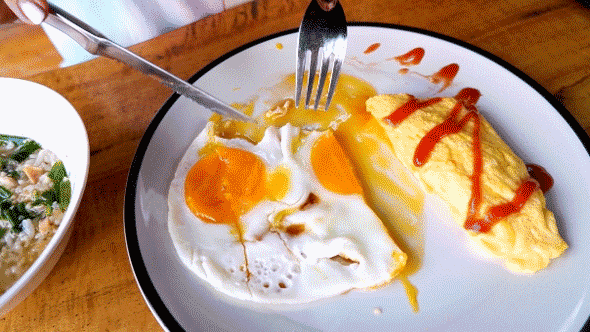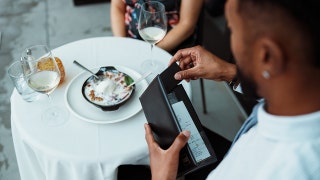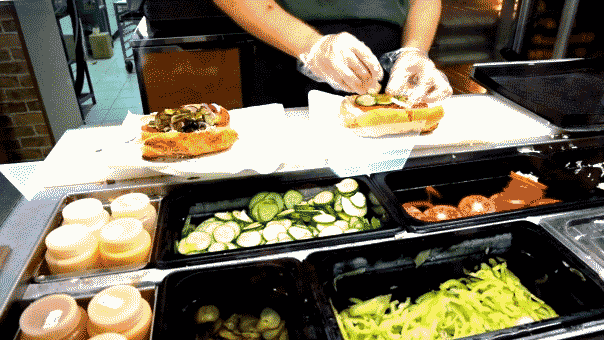Fox News Flash top headlines for April 17
Fox News Flash top headlines are here. Check out what's clicking on Foxnews.com.
Get all the latest news on coronavirus and more delivered daily to your inbox. Sign up here.
A big event means prior planning. Concerts, sporting events, and festivals that draw tens of thousands maybe canceled because of the coronavirus pandemic, but the preparations can't be turned off with the flip of a switch. One of the biggest dilemmas facing organizers is what to do with all the food already ordered and set to spoil.
Most organizations tend to preorder food in advance of large gatherings such as a sporting event, concert, or corporate function. Many have been left trying to figure out how to utilize surplus food once the events have been either canceled or postponed.
THE CORONAVIRUS OUTBREAK, STATE-BY-STATE
Food Recovery Network (FRN), a non-profit organization that operates 230 chapters in 44 states, is working with kitchens across a variety of industries to recover and donate surplus food from businesses to feed those in need.
“Our Food Recovery Verified program has been off the charts since COVID-19 hit – A lot of company’s pre-order food months ahead of time," FRN Executive Director Regina Anderson tells Fox News. "All of these massive venues who were supposed to have a concert or professional sporting event are now being canceled due to the virus leaving food to go to waste. These large companies are asking us to help them be resourceful.”

Volunteers recover over 35,000 pounds of food at Food Recovery Network's Winter Fancy Food Show in San Francisco this past January.
One of the companies FRN has partnered with is Spectra, a venue management, food services and hospitality company that provides catering and concessions services to stadiums, arenas and convention centers across North America.
“During this unprecedented time in the live entertainment, sports and conventions industry, our culinary teams have found some silver lining," Richard Schneider, Spectra’s Executive Vice President of Food Services and Hospitality, told Fox News in a statement. "In many cases, our venues had food onsite in preparation for events—say, MLB spring training, Major League Soccer home openers, or major corporate conventions — that were subsequently canceled."
Schneider said that Spectra’s venues have collectively donated thousands of pounds of perishable food to nonprofits including The Salvation Army, local firehouses, women’s shelters and even part-time staff with the help of FRN and other local nonprofits.
“While this is a small action relative to the larger situation at hand, we believe small actions can make a big difference in our communities during this challenging time,” Schneider said.
FRN’s Food Recovery Verified program, provides businesses with resources to learn how to better plan for events, reduce food waste, improve purchasing decisions, and recover perishable food to deliver to non-profit organizations in local communities to combat food insecurity in America.
To date, FRN has recovered close to four million pounds of food.
Nearly 22 million Americans have filed for unemployment over the past four weeks. The impact of the coronavirus has affected low-income people, especially those with food insecurities, leaving them in an even more dire position.
“People were already hungry before the pandemic," Anderson says. "Now there’s even more people."
She hopes these companies will continue to rescue food after the pandemic is over, adding FRN strives to make food recovery the norm, and not the exception.
Bronx-based wholesale grocery distributor and manufacturer Baldor Specialty Foods has a similar mindset, delivering products across the Northeast and Mid-Atlantic to restaurants and retail stores such as Whole Foods and Acme Markets.
As COVID-19 evolved rapidly in early March, states began to issue strict protocols for bars and restaurants in order to prevent the spread of the virus. Even with the acceptance of delivery and takeout orders, many food service businesses were forced to shut down, affecting all players in the supply chain from the farm to a distributor like Baldor.
“If a farmer already packed a truckload of products. We had to do something with it,” says Thomas McQuillian, Baldor's vice president of strategy, culture, and sustainability.

Baldor Specialty Foods has pivoted into home deliveries in addition to supplying restaurants and retailers during the coronavirus pandemic, adding a number of items to their food selection.
McQuillian says that Baldor was first impacted by the coronavirus outbreak when they began to lose clients day-by-day with orders from farms already in place.
“So we decided to focus on donating our products. Over the last three weeks we donated over 1,000 pallets of food to organizations supporting the food insecure in New York City such as City Harvest, Compassion Coalition, Food Bank for New York City and others," McQuillian says.
“Any food product that we may be overstocked with or was returned by a chef, that we get it into the hands of a donation partner to make sure that food is consumed and not wasted,” he added. “We had to be deliberate about procuring food, keep our farming system working, and keep farmers working. So we had to start ordering products from the farm in a different format."
According to Vice President of Sales and Marketing Ben Walker, Baldor lost 85 percent of its food service business but saw retail orders increase. To keep Baldor’s 350 trucks on the road delivering food and keep food moving, the company had to pivot by opening up its food market to the general public, not just restaurant owners and retailers. For a $250 minimum with free delivery, anyone can purchase produce or specialty foods ranging from milk, cheese to caviar online at Baldorfood.com.
McQuillian is calling on young, healthy, unemployed people to volunteer at their local food pantries to feed those with food insecurities since many organizations are need of volunteers during the pandemic.
“If you're hungry, you're more afraid of food insecurity than you are of COVID-19, especially if you have children [and] you're worried they might not have the nutrition they need to survive,” he said.
“We can't afford to have everybody paralyzed at home, donation partners are looking for support.”









































